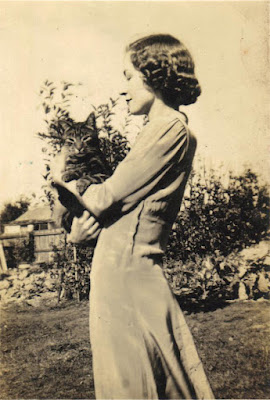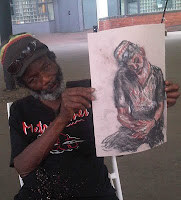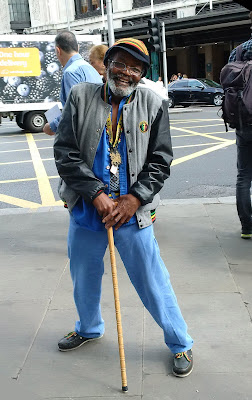 |
| Kathleen, my mother |
My mother Kathleen had left home, which had not been happy, by the age of 16. Her father, a good man whom I never met, was a stonemason on the Earl of Pembroke’s estate in Wiltshire; he rented a damp tied cottage with a spider-haunted outside toilet and poached the Earl’s trout in the River Nadder which ran past the garden.
She became a telephonist. Allied Command was based at Wilton House and she once disconnected Winston Churchill so that she could speak to him – ‘Trying to connect you.’ As her job was in the civil service she had to give it up on marriage to a handsome soldier from Toxteth during the war. They wrote beautifully expressed love letters (you don’t need a formal education for that) during their wartime years of separation. To my grief she ordered my father to burn them when she died.
I have never met anyone more alert or intelligent than she was. It rankled with her that her richer cousin Doris had been able to stay at school for longer. Doris teased my big sister for her ‘book-learning’ but I was secretly entranced by Doris’s plastic shower curtain with tropical fish on it and Spanish lady toilet roll cover.
A few feet from my desk is – are – the wooden tongs with which my mother fiercely stabbed and heaved laundry in the middle of our council house kitchen. The washing machine was a lidded cauldron on wheels. Attached to it was a stiff mangle which she turned to squeeze the hot sudsy water into a metal bucket.
Eventually my parents were able to buy a house with slightly more modern appliances, but homework remained the priority and our mother was determined that her daughters would not learn to do housework. When I arrived precipitately at Somerville, without a gap year, I had never boiled an egg and could just about assemble Vesta packet chow mein. I fell mute around the noisy self-sufficient boarding school girls.
I thought I understood my mother and her tormented anxiety but it is only now, in a shielding household (the significance of that idiom will be lost; let it die), cooking dinner every single evening and denied my Bulgarian cleaning lady (‘I do love Maupassant, don’t you, Isobel?’), that I am even beginning to learn how much the tongs pinched and wrung. My story is not unique. Members of this cohort born in the UK were lucky to arrive in the post-war blip.

















